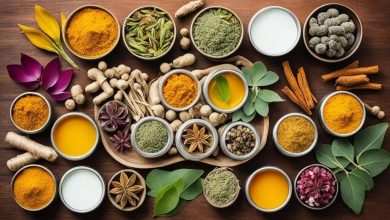Difficult To Swallowing Food: Strategies For Improving Eating Ability

Difficult to Swallowing Food can frustrating experience. Learn strategies for improving your eating ability with our helpful guide.
Difficult to Swallowing Food
Difficult to Swallowing Food can have many causes, but the most common is Achalasia. Achalasia is a disorder that affects the ability of the esophagus, or food pipe, to relax and allow food to pass from the throat into the stomach. The food pipe is made up of muscles that contract when it comes into contact with food in order to move it along. In people with Achalasia, these muscles are unable to fully relax, making it difficult or impossible for food to pass. Other causes of difficulty swallowing may include nerve damage, scarring of the esophagus, or an enlarged tongue or tonsils. Common symptoms associated with difficulty swallowing may include pain when swallowing, a sensation of something stuck in your throat, regurgitating undigested food or liquids after eating, heartburn or chest pain during meals, and coughing while eating.
Related Article; How I Cured My Achalasia With Herbal Remedies And Natural Treatment
When it comes to improving eating ability for those who have difficulty swallowing their food due to Achalasia, there are several strategies that you can consider taking advantage of. Natural treatment options such as dietary modifications and health-boosting supplements can be effective in helping improve eating ability and reduce uncomfortable symptoms associated with Achalasia. One of the first steps for those looking for natural treatment options for Difficult to Swallowing Food due to Achalasia is through dietary modifications. This can include avoiding certain foods and drinks that seem particularly difficult to swallow such as red meat and carbonated beverages. Additionally, by adding high-fiber foods like fruits and vegetables as well as soft foods like yogurt into your diet may help reduce discomfort while eating. Eating slowly and chewing each bite until it has turned into a liquid-like consistency also helps improve eating ability by reducing strain on the muscles in your throat.
In addition to dietary modifications, there are various health-boosting supplements available on the market that may assist in reducing uncomfortable symptoms associated with Difficult to Swallowing Food due to Achalasia such as magnesium oxide or L-glutamine powder which help relieve pressure in the throat muscles allowing for easier swallowability. Natural Remedies for Good Health such as slippery elm bark extract may also provide relief from soreness within your throat while stimulating mucous production which aides in lubricating your throat during mealtime activities. Overall when considering strategies for improving eating ability due Difficult to Swallowing Food caused by Achalasia you should take into account both dietary modifications as well as taking advantage of various health-boosting supplements available on the market today which can help reduce uncomfortable symptoms associated with this condition while making mealtime activities more enjoyable overall!
Related Article; Feeling of Stomach Being Empty Exploring the Benefits of Wellness
Strategies for Difficult to Swallowing Food
Eating smaller meals more frequently is one strategy people with Achalasia can consider. Smaller meals put less pressure on the lower esophageal sphincter (LES), allowing more time to digest food before the next meal. Additionally, chewing foods thoroughly and avoiding large amounts of liquids at mealtimes can make swallowing easier. Foods should also be soft – this means avoiding dry or crunchy foods such as chips or toast as well as any raw fruits or vegetables which may be difficult to chew and swallow. Soft cooked vegetables, mashed potatoes or soft fruits are all good options for those with Achalasia who are having difficulty swallowing food.
Related Article; Cancer of the Esophagus or Upper Stomach Join the Fight Against
Health-Boosting Supplements
In addition to diet modifications, taking natural supplements may help reduce symptoms associated with Achalasia and improve overall health. These supplements include magnesium citrate powder which helps relax muscles in the body including those in the esophagus; probiotics which contain beneficial bacteria that support healthy digestion; amino acids such as lysine and glutamine which promote relaxation of LES; and omega-3 fatty acids which reduce inflammation in the body. Taking these supplements regularly can help reduce symptoms associated with Achalasia while also providing additional health benefits such as improved digestive health and immunity.
Lifestyle Changes for Difficult to Swallowing Food
Finally, lifestyle modifications can also help improve symptoms associated with Achalasia. This includes reducing stress levels through yoga or exercise; getting plenty of restful sleep; abstaining from smoking; minimizing alcohol consumption; taking medications only when prescribed by a doctor; and avoiding overly spicy foods which may exacerbate symptoms such as heartburn or difficulty swallowing food. Additionally, drinking plenty of water throughout the day can help keep your body hydrated while also aiding in digestion and preventing constipation—a common issue associated with Achalasia.
Related Article; Achalasia: Read the Overall Information about the Neurological Disorder
Making changes to your diet, taking health-boosting supplements, and making lifestyle modifications are all important strategies for managing symptoms associated with Achalasia such as difficulty swallowing food. With these changes, people living with this condition can take steps towards improving their quality of life while also reducing discomfort associated with eating difficulties caused by Achalasia.
Health-Boosting Supplements for Improving Eating Ability
Eating can be a challenge for those who suffer from a condition called Achalasia. This condition affects the body’s ability to swallow food properly, causing difficulty with eating and digestion. Fortunately, there are health-boosting supplements that can help improve the eating ability of those suffering from Achalasia. We will discuss Natural Remedies for Achalasia as well as health-boosting supplements that may help to improve eating ability.
Related Article; Achalasia Cardia Definition: The Enigmatic Esophageal Disorder
Health-boosting supplements that have been found to be helpful in improving eating ability in those suffering from Achalasia or similar disorders. Some of these supplements include vitamin B12, probiotics, digestive enzymes, omega-3 fatty acids, probiotics and other Achalasia Top Home Remedies such as slippery elm or aloe vera juice. These supplements may help reduce nerve inflammation associated with Achalasia and make it easier to swallow food properly. It is important to speak with your doctor before taking any supplement to ensure it is safe for you and does not interact with any other medications you may be taking.
Swallowing food can be difficult if you suffer from achalasia or similar disorders. However, there are natural treatments and health-boosting supplements that can help improve your eating ability by reducing nerve inflammation and aiding digestion. Make sure to speak with your doctor before taking any supplement so they can determine if it is safe for you and does not interact with any other medications you may be taking.
Natural Treatment for Achalasia: Diet, Lifestyle and Supplements
Achalasia is a rare disorder of the muscles of the esophagus (the tube through which food travels from the mouth to the stomach). It is caused by a malfunction in the nerves controlling these muscles and results in difficulty when swallowing. Symptoms of Achalasia include chest pain, regurgitation and heartburn after eating. In severe cases, it may also cause vomiting or weight loss.
Eating foods can be a challenge and a difficult task for those with Achalasia. Fortunately, there are several home remedies available for Natural Treatment for Achalasia that can help improve eating ability, reduce discomfort, and ease digestion. This includes dietary changes, lifestyle modifications and health-boosting supplements.
Related Article; Home Treatments for Achalasia Relief through Lifestyle Changes
Although medications such as calcium channel blockers may help reduce symptoms associated with Achalasia, many people prefer natural treatment options due to their lack of side effects and long-term benefits on overall health and wellbeing. A few natural treatment strategies recommended by nutritionists include opting for whole foods high in fiber and nutrients such as fruits, vegetables and legumes, avoiding processed foods as much as possible, drinking plenty of fluids throughout the day, taking health-boosting supplements such as probiotics or fish oil as needed and engaging in regular physical activity on a daily basis.
FAQs
Q: Can dysphagia be cured completely? A: While some causes of dysphagia can be treated or managed effectively, complete cure depends on the underlying condition. Seeking professional guidance is crucial for appropriate diagnosis and treatment.
Q: Are there specific foods to avoid for people with difficulty swallowing? A: Certain foods, such as dry or tough textures, should be approached with caution. Consultation with a healthcare professional or nutritionist can help create a tailored diet plan.
Q: Can stress and anxiety worsen swallowing difficulties? A: Yes, stress and anxiety can exacerbate swallowing challenges. Incorporating relaxation techniques and seeking psychological support can be beneficial.
Q: Are there age-related factors contributing to difficulty swallowing? A: While aging can affect swallowing function, difficulty swallowing should not be considered a normal part of aging. Consulting a healthcare professional is essential for proper evaluation.
Q: How can family members support individuals with dysphagia? A: Family support is crucial. Understanding dietary restrictions, assisting with meal preparation, and encouraging regular medical check-ups are ways to provide valuable support.
Q: Is dysphagia more common in certain medical conditions? A: Yes, dysphagia can be associated with conditions such as stroke, Parkinson’s disease, or gastroesophageal reflux disease. Addressing the underlying condition is key to managing swallowing difficulties.




